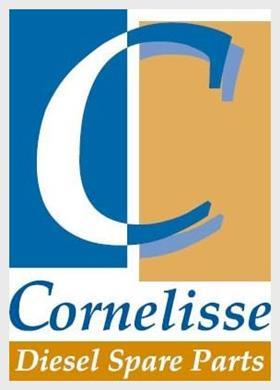This article focuses on what “independence” means and why independent manufacturers and suppliers are a good alternative for ship owners.

For them, a safe option usually is to buy spare parts from the large-sized engine manufacturers or related specialised parts manufacturers. There are alternative spare parts manufacturers and suppliers, possessing both independence and high technical standards and qualifications, that offer lower prices.
What does “independent” mean?
The term ‘independent’, for the purposes of this article, shall be used to signify a company that is: (i) not wholly or partially owned by one of the major engine manufacturers, and (ii) not under an exclusivity agreement that makes it impossible to conduct business with other companies. A company may still be considered mostly independent even if it has concluded an agreement with a major engine manufacturer (e.g. a distribution agreement). Even so, there is a distinction between manufacturers and suppliers, although a company can be both. Manufacturers possess their own manufacturing facility, technically qualified engineers and staff and can rely on their own technical drawings to manufacture a part. Suppliers of spare parts are generally subject to the same definition of independence with the difference that, in this case, the main activity is distribution and supply. Many manufacturers and suppliers also offer repairs, reconditioning and technical service. What is the reality?
Two factors play a key role here. First, common practices and misconceptions have misled many clients into not buying from independent companies:
- Pressure is put on independent companies by other actors in the industry e.g. through supply restrictions;
- Competition is distorted which empowers monopolism and threatens the existence of independent companies;
- Misconceptions such as “Ship owners can only buy spare parts from the original manufacturer” have been spread, creating a prejudice against the market.
Second, underlying this is the current legal framework. The most important example is the MARPOL Annex VI NOx regulations which distort competition. The Parameter Method is an outdated way of checking compliance with emissions limits under the NOx regulations and has allowed for the popularisation of the above practices and misconceptions. One side of the issue are the IMO reference numbers for spare parts. Despite that the IMO did not regulate who can use them, independent companies are often not allowed to stamp them on their parts due to copyright claims. Meanwhile, there are alternatives, such as the Continuous Emission Monitoring Systems (CEMS), that can provide for a uniform approach in monitoring emissions and render the Parameter Method obsolete.
Why an independent company?
Working with an independent company has many benefits, including:
- Competitive prices of parts and services;
- Good quality and technical expertise;
- Innovative solutions;
- Wider variety of choice;
- Worldwide service;
- Client-based approach, focused on building a strong connection.
In short, opting for an independent company can have a positive impact on a business that relies on spare parts and service. Quality is not uniform in any industry but EMISA has strict standards as to its members. Upon conducting research one can find the best option among the many independent companies that can provide an alternative.
Our message
The marine industry and the legislators have to work towards changing this outdated legal framework providing independent companies with a secure place in the market and promoting innovation. The main driver is making free and fair competition the norm, as expressed in the principles of the EU and the IMO. It is crucial to preserve good quality, variety and innovation in order to achieve progress towards a future where the marine industry will be at the forefront of transportation.
If you want to learn more or show your support, contact us at info@emisa.eu.







